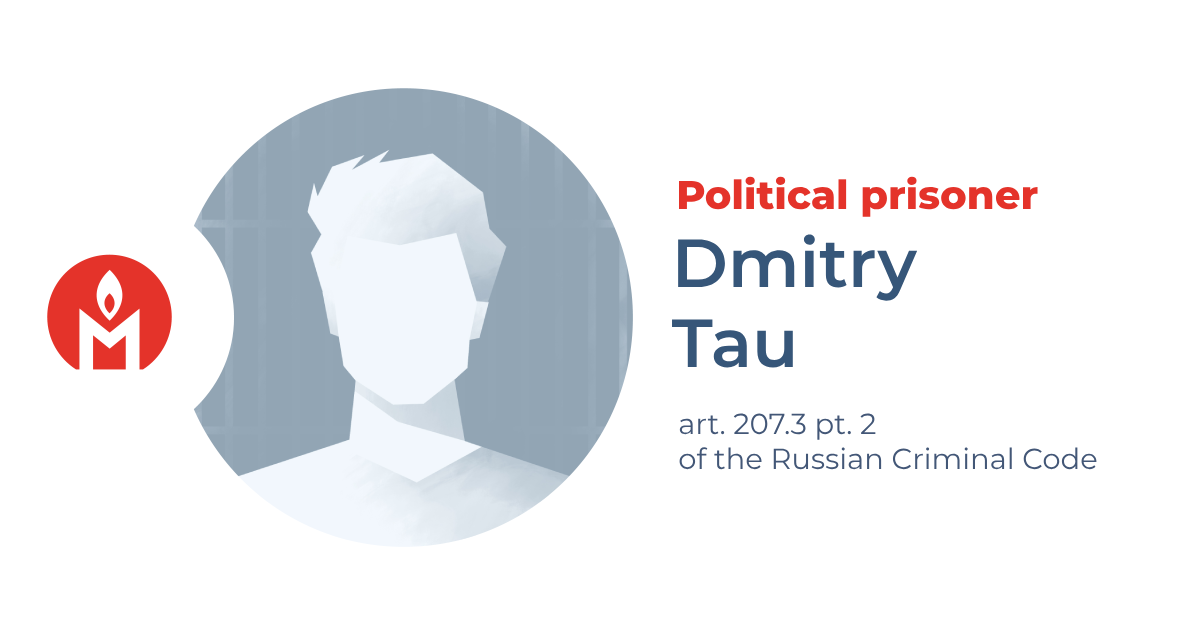Dmitry Tau is a political prisoner
A resident of Kurgan Oblast has been sentenced to five years’ compulsory work on a charge of spreading ‘fake news’ about the Russian army for a video posted on VK.
The ‘Political Prisoners. Memorial’ human rights project, in accordance with international standards, considers Dmitry Tau a political prisoner. Tau was convicted of ‘disseminating information known to be false’ about the Russian armed forces for posting a video on his social media page. Tau’s criminal prosecution and conviction violated his rights to freedom of expression and a fair trial. We demand the immediate release of Dmitry Tau and that all criminal charges against him be dropped.

What were the charges against Dmitry Tau?
In July 2024, Dmitry Tau, a resident of Shchuchye in Kurgan Oblast, posted a video along with comments about Russia’s war against Ukraine on his VK social media page. As a result, he was prosecuted for ‘public dissemination of information known to be false about the Russian armed forces (Article 207.3, Part 2, of the Russian Criminal Code). In the autumn of 2024, he was remanded in custody.
On 14 March 2025, a court sentenced Tau to a custodial sentence of five years’ compulsory work in a correctional centre, with 10% of his salary to be withheld by the state. He was also banned from administering websites for three years.
Why do we consider Dmitry Tau a political prisoner?
The offence of which Dmitry Tau was convicted – the dissemination of information known to be false about the Russian army – was introduced into the Russian Criminal Code immediately after the start of Russia’s full-scale war against Ukraine. In practice, this article of the Criminal Code prohibits any criticism of the Russian authorities or military, in violation of the civil right to freedom of expression. This article also contradicts the Russian Constitution; therefore, any prosecutions brought under it are unlawful.
We do not know the exact contents of the video posted by Tau. However, the fact that he was prosecuted under an unlawful article of the Criminal Code for criticising the actions of the Russian military in Ukraine clearly indicates that his actions posed no real danger to the public.
Public criticism of the war against Ukraine cannot be regarded as a crime and must not be grounds for criminal prosecution, let alone imprisonment.
A detailed description of Dmitry Tau’s case and of our position is available on our website.
Recognition of an individual as a political prisoner does not imply the ‘Political Prisoners. Memorial’ human rights project agrees with, or approves of, their views, statements, or actions.
How can you help?
You can donate to help all political prisoners in Russia.
